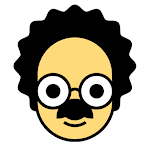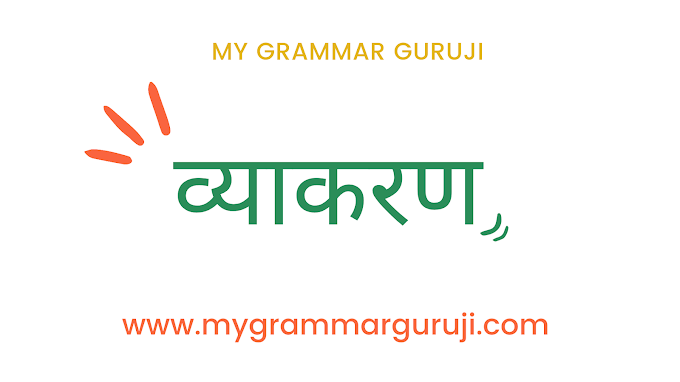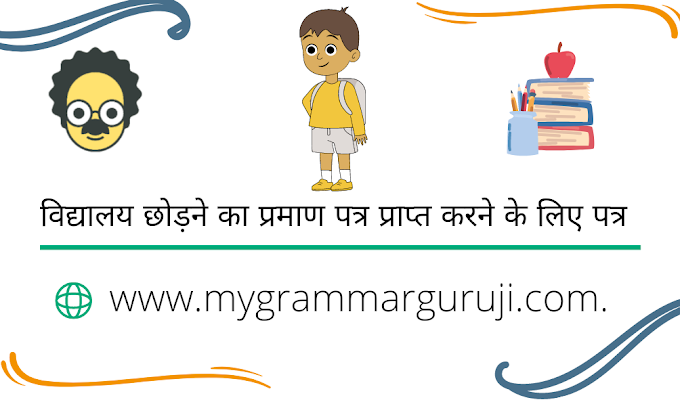What are the Determiners ?
A word that comes before a noun to show how the noun is being used.
संज्ञा से पहले प्रयुक्त शब्द जो संज्ञा की प्रयोग विधि को निर्धारित करता है| (निर्धारक)
Kind of Determiners
निर्धारकों के प्रकार
- Article Determiners
- Demonstrative Determiners
- Possessive Determiners
- Numeral Determiners
- Quantitative Determiners
ARTICLE DETERMINERS
An article is a word that modifies or describes the noun.
Article Determiners have been explained in great detail in previous posts, if you have not read it yet, you can read it by clicking here; Articles
Article Determiners को पिछली पोस्ट मे बहुत विस्तार मे समझाया गया हैँ यदि आपने उसे अभी तक नहीं पढ़ा हैँ तो आप उसे यहाँ क्लिक करके पढ़ सकते हैँ : Articles
DEMONSTRATIVE DETERMINERS
It describes the position of an object, seen from the speaker's view point.
(यह एक वस्तु की स्थिति का वर्णन करते हैं, जिसे देखा जा सकता है)
This, That, These, Those
1.This : यह (Singular noun)
For the nearest object. (निकटतम वस्तु के लिए)
Ex :
- यह मेरी पुस्तक हैँ
- This is my book.
2.That : वह (singular noun)
For the distant object. (दूर की वस्तु के लिए)
Ex :
- वह पर्स उसका है।
- That purse is her.
3.These : ये (plural noun)
For the nearest object. (निकटतम वस्तु के लिए)
Ex :
- ये तुम्हारे कपड़े हैं
- These clothes are yours.
4.Those : वे (plural noun)
For the distant object. (दूर की वस्तु के लिए)
Ex :
- वे आपकी किताबें हैं।
- Those are your books.
POSSESSIVE DETERMINERS
Possessive pronoun and adjective indicate who an object belongs.
(इंगित करें कि कोई वस्तु किसकी है)
My, our, your, his, her, its, their, one's
My - मेरा / मेरी
Our - हमारा / हमारी
Your - तुम्हारा / तुम्हारी
His - उसका / उसकी
Her - उसका/ उसकी
Its - उसका / उसकी
Their - उसका / उनकी
One's - हर व्यक्ति
NUMERAL DETERMINERS
Numbers are cardinal and ordinal.
- Cardinal : One, two, three, etc.
- Ordinal : First, Second, third, etc.
1. Definite (one, two, three, first, second, both etc.)
2. Indefinite (some, any, few, all, several etc.)
3. Distributive (each, every, either, neither etc.)
1. Definite numerals : It shows a fixed number.
(इसमें निश्चित संख्या का पता चलता हैँ)
Examples (one, two, three, first, second, both)
- Rohit has six friends.
- There were two boys in the room.
- Both the students are intelligent.
- The first boy in the third row is my brother.
2. Indefinite numerals : It shows indeterminate numbers.
(इसमें अनिश्चित संख्याओ का पता चलता हैँ)
A) Some : Something or someone. कुछ या कोई ( Affirmative sentence )
Use a singular or plural noun after Some, with countable noun some means a few or a small number.
(Some के बाद singular या Plural noun का प्रयोग करते हैँ countable noun के साथ some का अर्थ a few या a Small number होता हैँ)
Examples
- There are some people in the hall.
- There is some milk in the jug.
B) Any : Something or someone/कुछ या कोई (Negative or Interrogative sentence)
It is different from some because it is used in negative and interrogative sentences.
(यह some से अलग हैँ क्योकि इसका प्रयोग negative व Interrogative sentences मे किया जाता हैँ)
Examples
- Do You have any idea about it?
- I don't go there any more.
- Sorry, I have not any money in my pocket.
- You won't have any more trouble now.
C) Many : A great number.(बहुत से)
Examples
- Many people came there.
- I have been there many a time.
- Many a politician has promised to Make changes.
D) Few :A smaller or less number.
(एक छोटी या आवश्यकता से कम संख्या)
Examples
- I have seen few places in Delhi.
- She has bought a few books.
- I have bought few books.
Note :- a few : To equal need (आवश्यकता के बराबर के लिए)
E) The few : Not much but all of them.
(ज्यादा नहीं लेकिन सब के सब)
Examples
- I had read the few books that I had.
- She has spent the few money she had.
- The few clothes he has are very good.
F) All : Every person or thing.
सब या सबके आगे /इसके आगे (Plural noun)
Examples
- Drink all the milk.
- All the students are present today.
- They gave me all the money.
G) Several : various (कई)
Examples
- He took several hours to repair my watch.
- This matter wil take several weeks.
- I had gone there several times.
3. Distributive numerals : Every person or things of any class reveals.
(इसमें किसी वर्ग की प्रत्येक वस्तु या व्यक्ति का पता चलता हैँ)
A) Each : use with group of two or more ; प्रत्येक या हर एक
(दो या दो से ज्यादा के समूह के साथ प्रयोग)
Examples
- We invited each of them.
- I had read each of these books.
B) Every : Use with three or more groups ; प्रत्येक /सभी
(तीन या अधिक समूह के साथ प्रयोग)
Examples
- We go there everyday.
- Every one knows about you.
C) Either :-One of two.
(दो मे से कोई एक)
Examples
- You can take either book, both are good.
- You can use either method, both are easy.
- She can have either tea or coffee
D) Neither : None of two.
(दो मे से कोई नहीं)
Examples
- Neither of you are honest.
- Neither news is true.
- he is neither my friend nor my enemy.
QUANTITATIVE DETERMINERS
It asks about two questions and tells their answers :
(यह दो प्रश्नों के बारे में पूछता है और उनके उत्तर बताता है:)
- How many? &
- How much?
Some, any, no, much, more,less,little,enough,half, whole.
A) Some : Something or someone. कुछ या कोई ( Affirmative sentence )
Use a singular or plural noun after Some, with countable noun some means a few or a small number.
(Some के बाद singular या Plural noun का प्रयोग करते हैँ countable noun के साथ some का अर्थ a few या a Small number होता हैँ)
Examples
- There are some people in the hall.
- There is some milk in the jug.
B) Any : Something or someone.(कुछ या कोई)
It is different from some because it is used in negative and interrogative sentences.
(यह some से अलग हैँ क्योकि इसका प्रयोग negative व Interrogative sentences मे किया जाता हैँ)
Examples
- Do You have any idea about it?
- I don't go there any more.
- Sorry, I have not any money in my pocket.
- You won't have any more trouble now.
C) No : Disagree/ not any. (जरा भी नहीं)
Examples
- I have no knowledge about it.
- There is no truth what you say.
- She has no sense, how to talk their elders.
D) Much : To describe Quantity in uncountable noun. (बहुत)
Examples
- She has much to gain.
- I am felling much better now.
- You smoke too much.
- My brother gave me too much milk to drink.
E) More : of great quality. (अधिक मात्रा / और अधिक)
Examples
- I can't wait any more.
- You have to put in more efforts.
- Will you go there any more.
F) Less : In a small quantity. (कम मात्रा)
Examples
- We have less time to do an assignment.
- He devotes less time in study.
- As he was careful he had less problem.
G) Little : Less than requirement. (आवश्यकता से कम)
Examples
- I have little money, I can't buy it.
- There is little hope of his arrival.
H) A little : Equal to need (आवश्यकता के बराबर)
Examples
- It rained a little last night.
- A little patience is required now.
- There was a little hope of her recovery.
- There is a little money left.
I) The little : Less but all that (कम लेकिन जितना हैँ वो सबका सब)
Examples
- I have spent the little money I had.
- She lost the little hope she had.
- Make the best use of the little time you have.
- I have saved enough money to buy dream house.
- He plays well enough to win.
- It's half plate of rice.
- The college was half finished that day.
- He spent the whole day with me.
- She drink a whole bottle of water.






No comments:
Post a Comment
Thank you! Your comment will prove very useful for us because we shall get to know what you have learned and what you want to learn?